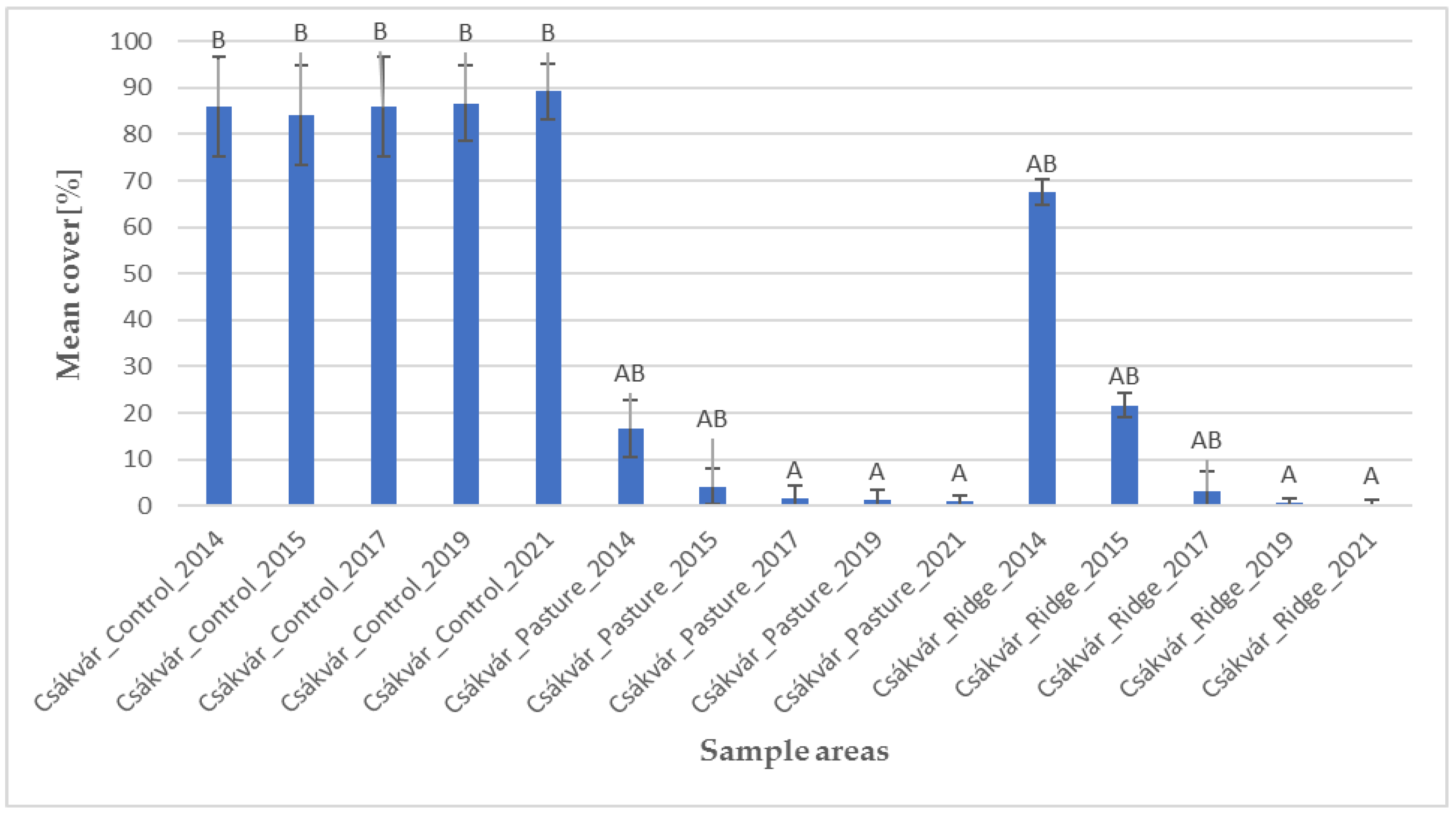Examination of the Effects of Domestic Water Buffalo (Bubalus bubalis)
Grazing on Wetland and Dry Grassland Habitats
by Attila Fűrész, Károly Penksza, László Sipos, Ildikó Turcsányi-Járdi, Szilárd Szentes, Gabriella Fintha, Péter Penksza, Levente Viszló, Ferenc Szalai and Zsombor Wagenhoffer
Plants 2023, 12(11), 2184; Open Access Article – published: 31 May 2023
(This article belongs to the Special Issue
Grassland Diversity and Ecological Restoration)
Abstract
In nature conservation today, there is a global problem with the aggressive expansion of invasive plant species and the conservation of valuable grassland vegetation. Based on this, the following question has been formed: Is the domestic water buffalo (Bubalus bubalis) appropriate for managing various habitat types? How does grazing by water buffalo (Bubalus bubalis) affect on grassland vegetation? This study was carried out in four areas of Hungary. One of the sample areas was in the Mátra Mountains, on dry grassland areas where grazing had been applied for two, four and six years. The other sample areas were in the Zámolyi Basin, where wet fens with a high risk of Solidago gigantea and in a typic Pannonian dry grassland were investigated. In all areas, grazing was carried out with domestic water buffalo (Bubalus bubalis). During the study, we carried out a coenological survey, examining the change of cover of plant species, their feed values and the biomass of the grassland. According to the results, both the number and cover of economically important grasses (from 28% to 34.6%) and legumes (from 3.4% to 25.4%) increased in Mátra as well as the high proportion of shrubs (from 41.8% to 4.4%) shifted toward grassland species. In the areas of the Zámolyi Basin, invasive Solidago has been suppressed completely, the pasture has been converted completely (from 16% to 1%) and the dominant species has become Sesleria uliginosa. Thus, we have found that grazing with buffalo is suitable as a habitat management method in both dry grasslands and wet grasslands. Therefore, in addition to its effectiveness in the control of Solidago gigantea, grazing with buffalo is successful in both nature conservation and economic aspects of grassland vegetation.
Thus, we have found that grazing with buffalo is suitable as a habitat management method in both dry grasslands and wet grasslands. Therefore, in addition to its effectiveness in the control of Solidago gigantea, grazing with buffalo is successful in both nature conservation and economic aspects of grassland vegetation.
Keywords:control of woody species; Festuca sp.; grassland management value; invasive species; pasture; turf management value



